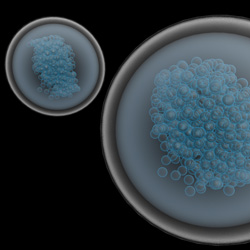Stem cell donors treated to avoid recipient infection
Allogeneic stem cell transplantation (ASCT) is the transfer of blood-forming stem cells from a similar yet not necessarily related donor. Used as a treatment method for a variety of malignancies, challenges in finding well-matched donors, graft versus host disease (GVHD) and infection often limit its wider application. The 'Graft engineering to improve allogeneic stem cell transplantation' (GIFT) project endeavoured to see how current knowledge of immune cell transfers can be exploited to minimise the incidence of GVHD, enhance immunity and stave off leukaemic responses in ASCT. A primary task was to investigate if FTY720, an immunosuppressive agent, can be used in donors in the phase of stem cell mobilisation to create a graft with low GVHD potential. At the same time it should offer good anti-tumour and immune rebuilding potential. Study results showed that FTY720 can be successfully used in donors to selectively weaken certain cells and thus prevent GVHD following ASCT. This is effected without affecting cancer-fighting memory T cells or immune boosting natural killer cells. This means it is possible to improve the immunological features of peripheral blood stem cell grafts and therefore fight the threat of infections, avoid GVHD and even preserve anti-tumour activity. It is expected that this study's findings will facilitate the design of new and more effective protocols guiding stem cell grafts for treating cancer.







